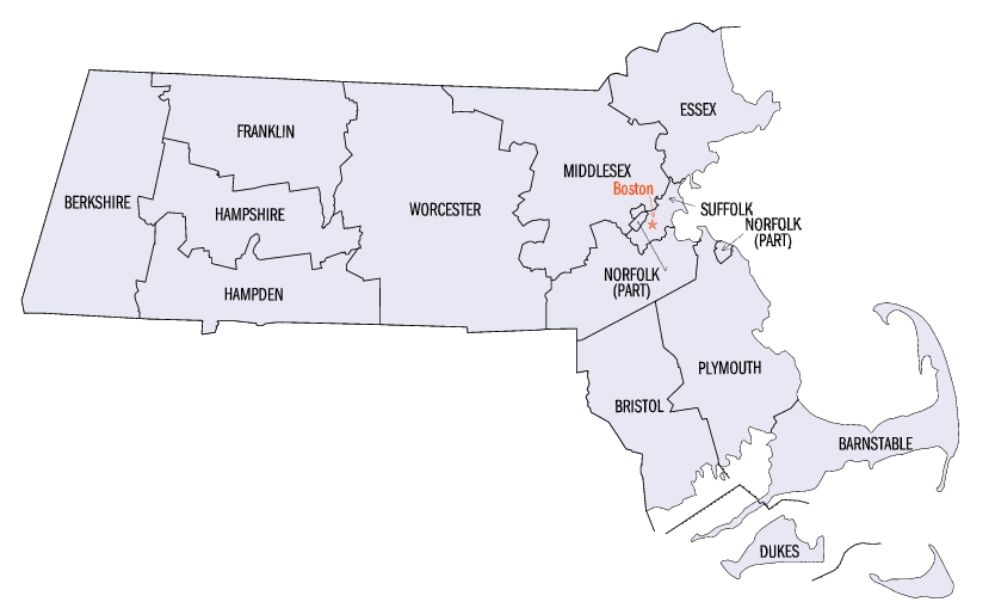The Supplemental Nutrition Assistance Program (SNAP), formerly known as food stamps, is a federal program that provides assistance to low-income individuals and families to purchase food. In response to the COVID-19 pandemic, the federal government has increased SNAP benefits to help families struggling with food insecurity. However, these extra benefits are set to expire soon, leaving many Massachusetts residents wondering when they will end. In this article, we will explore the timeline for the end of extra SNAP benefits in Massachusetts and the potential impact on individuals and families.
Contents
The Increase in SNAP Benefits During the Pandemic
In March 2020, the Families First Coronavirus Response Act (FFCRA) was signed into law, providing emergency funding for various programs, including SNAP. As part of this act, the federal government increased SNAP benefits by 15% to help families facing financial hardship due to the pandemic. This increase was meant to be temporary and was set to expire on June 30, 2021.
However, in December 2020, the Consolidated Appropriations Act was passed, extending the 15% increase in SNAP benefits until September 30, 2021. This extension was a relief for many families who were still struggling to make ends meet during the ongoing pandemic.
Read:Who is eligible for unemployment benefits?The American Rescue Plan Act and Its Impact on SNAP Benefits
In March 2021, the American Rescue Plan Act (ARPA) was signed into law, providing additional relief to individuals and families affected by the pandemic. This act included a provision to extend the 15% increase in SNAP benefits until September 30, 2021, and also provided an additional $1.1 billion in funding for the SNAP program in Massachusetts.
With the ARPA, the federal government also introduced a new program called the Pandemic Electronic Benefit Transfer (P-EBT). This program provides additional food assistance to families with children who would have received free or reduced-price meals at school if not for the pandemic. The P-EBT benefits are set to continue until the end of the 2020-2021 school year.
The Timeline for the End of Extra SNAP Benefits in Massachusetts
As mentioned earlier, the 15% increase in SNAP benefits is set to expire on September 30, 2021. This means that starting October 1, 2021, SNAP benefits will return to their pre-pandemic levels. However, it is important to note that this timeline is subject to change, as it depends on the state of the pandemic and the decisions made by the federal government.
Read:Are fringe benefits taxable?Additionally, the P-EBT benefits are set to end at the end of the 2020-2021 school year, which varies depending on the school district. For example, some school districts in Massachusetts end their school year in June, while others end in late August. This means that some families may continue to receive P-EBT benefits until June, while others may receive them until August.
It is also worth mentioning that the end of extra SNAP benefits does not mean the end of all assistance for families in need. The SNAP program will continue to provide assistance to eligible individuals and families, and the state of Massachusetts also offers other programs such as the Healthy Incentives Program (HIP) and the Emergency Food Assistance Program (TEFAP) to help with food insecurity.
The Potential Impact on Individuals and Families
The end of extra SNAP benefits in Massachusetts could have a significant impact on individuals and families who have been relying on them to put food on the table. The 15% increase in benefits has been crucial in helping families facing financial hardship due to the pandemic. Without this increase, many families may struggle to afford enough food for themselves and their children.
Read:What is the average social security benefit per monthAccording to a report by the Center on Budget and Policy Priorities, the 15% increase in SNAP benefits has lifted millions of people out of poverty and reduced food insecurity rates. The report also states that without this increase, the number of people experiencing food insecurity would have been 45% higher.
Furthermore, the end of P-EBT benefits could also have a significant impact on families with children who rely on free or reduced-price meals at school. These families may have to find alternative ways to provide meals for their children, which could be a financial burden for some.
What Can Be Done to Address the End of Extra SNAP Benefits?
As the end of extra SNAP benefits in Massachusetts approaches, it is essential to consider what can be done to address the potential impact on individuals and families. One solution could be for the federal government to extend the 15% increase in benefits beyond September 30, 2021. This would provide much-needed relief to families who are still struggling due to the pandemic.
Another solution could be for the state of Massachusetts to increase funding for programs like HIP and TEFAP to help fill the gap left by the end of extra SNAP benefits. These programs provide additional assistance to families in need and could help mitigate the impact of the end of extra SNAP benefits.
Additionally, it is crucial for individuals and families to be aware of other resources available to them. For example, food banks and pantries can provide free groceries to those in need, and organizations like Project Bread offer assistance with applying for SNAP benefits and other food assistance programs.
Conclusion:
The extra SNAP benefits provided by the federal government in response to the COVID-19 pandemic have been a lifeline for many families in Massachusetts. However, these benefits are set to end soon, leaving many individuals and families wondering what will happen next. While the timeline for the end of extra SNAP benefits is subject to change, it is essential to be aware of the potential impact and to explore solutions to address it. Ultimately, it is crucial for the federal and state governments to continue providing support to those in need during these challenging times.









